
Souvlaki is the second studio album by the English rock band Slowdive. It was recorded in 1992, and released on 1 June 1993 by Creation Records.
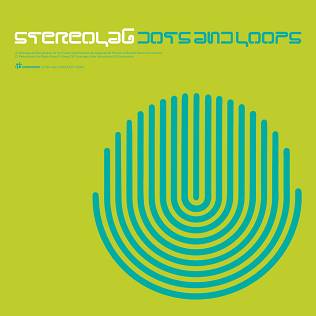
Dots and Loops is the fifth studio album by English-French rock band Stereolab. It was released on 22 September 1997 and was issued by Duophonic Records and Elektra Records. The band co-produced the album with John McEntire and Andi Toma, and recording took place at their respective studios in Chicago and Düsseldorf. It was their first album to be recorded straight to Digital Audio Tape and produced with Pro Tools. The album explores jazz and electronic sounds, and is influenced by bossa nova and 1960s pop music. Its lyrics address matters such as consumerism, the "spectacle", materialism, and human interaction.

Os Mutantes is the debut album by the Brazilian tropicalia band Os Mutantes. It was originally released in 1968 by Polydor and blends traditional Brazilian music styles with American and British psychedelia. The album includes a cover of The Mamas & The Papas' "Once Was a Time I Thought", translated into "Tempo no Tempo", and a cover of "Le premier bonheur du jour", previously recorded by Françoise Hardy. It was reissued in 1999 on Omplatten Records and again in 2006 by Omplatten's parent company, Universal Records.

La Mia Vita Violenta is the second studio album by American alternative rock band Blonde Redhead. It was released in September 1995 by Smells Like Records.
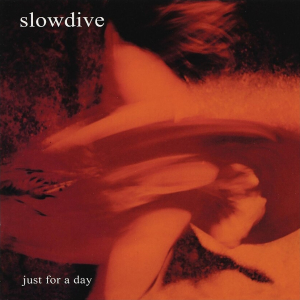
Just for a Day is the debut studio album by English rock band Slowdive. It was released on 2 September 1991 by Creation Records.
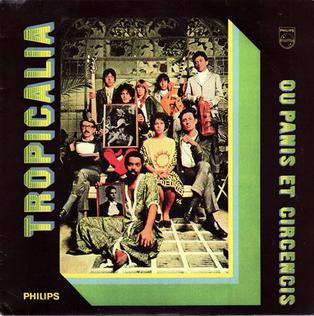
Tropicália ou Panis et Circencis is a 1968 collaboration album by artists including Gilberto Gil, Caetano Veloso, Tom Zé, Os Mutantes and Gal Costa. Considered an important record in the Tropicália movement and in the history of Brazilian music, it features orchestral arrangements by Rogerio Duprat and lyrical contributions from Torquato Neto.

Future Perfect is the debut studio album by American alternative rock band Autolux. It was released on October 26, 2004 by DMZ and RED Ink Records. The album was produced by musician and DMZ co-founder T Bone Burnett, and was primarily recorded at Sunset Sound Recorders in Los Angeles.
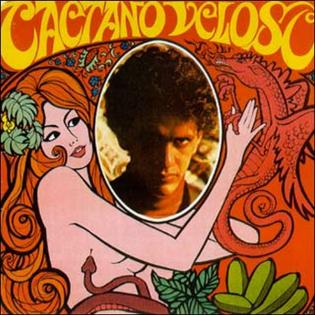
Caetano Veloso is the debut solo album by the artist of the same name, released in Brazil in 1968. He had released Domingo the year before in collaboration with Gal Costa. It was one of the first Tropicália efforts, and features arrangements by Júlio Medaglia, Damiano Cozzella, and Sandino Hohagen, as well as an eclectic assortment of influences, demonstrating the "antropofagia" of the Tropicália movement. Sounds from psychedelia, rock, pop, Indian music, bossa nova, Bahian music and other genres appear on the album. It includes the hit songs "Alegria, Alegria", "Tropicália", and "Soy loco por ti, América".
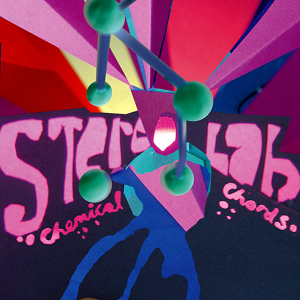
Chemical Chords is the ninth studio album by English-French rock band Stereolab, released on 18 August 2008 by 4AD and Duophonic Records.

Taiga is the fifth studio album by Japanese experimental rock band OOIOO. It was released on July 4, 2006 by the labels Felicity, Polystar and Shock City. It is an avant-rock and experimental pop album that blends numerous world music influences, particularly African music.

Not Music is the tenth and most recent studio album by English-French rock band Stereolab, released on 16 November 2010 by Drag City and Duophonic Records. The album is a collection of unreleased material recorded at the same time as their previous album, Chemical Chords (2008).
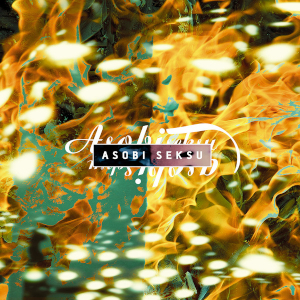
Fluorescence is the fourth and final studio album by American shoegaze band Asobi Seksu. It was released on February 14, 2011, by Polyvinyl Record Co.

Psychic is the debut album by electronic music duo Darkside, consisting of Nicolás Jaar and Dave Harrington. It was released on October 4, 2013, on Matador Records.
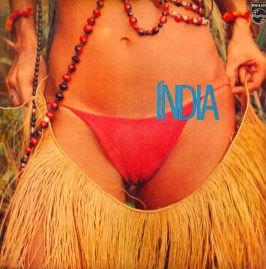
Índia is the fourth studio album by Brazilian singer Gal Costa, released on 1973 by Philips Records. Its major hits were "Índia", "Volta" and "Desafinado".

Awake is the third studio album by the American ambient music project Tycho, released on March 18, 2014 by Ghostly International. It is the second album in a 'trilogy' by the project, beginning with Dive in 2011 and concluding with Epoch in 2016. To date it is his highest charting album in the United States peaking at 23.
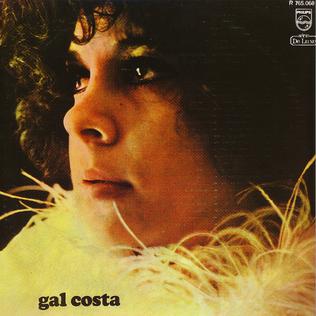
Gal Costa is the first solo album by the Brazilian singer Gal Costa, released in 1969. It was ranked the 80th best Brazilian album of all time by the Brazilian Rolling Stone magazine.

Longing is the debut studio album by the Seattle-based doom metal band Bell Witch, released on November 13, 2012 through Profound Lore Records. The album began Bell Witch's trend of slow, low, and mournful music for which the band would become known.

Thought Gang is a studio album by American composers Angelo Badalamenti and David Lynch created under the joint moniker Thought Gang. Though released on November 2, 2018 through Sacred Bones Records, Thought Gang was originally recorded in the early 1990s. The album was preceded by a Lynch-directed music video for "A Real Indication" on November 1, 2018. The video was created in 1992 in the 8mm video format.

Serpent Music is the second studio album by American experimental musician and record producer Yves Tumor. It was released on September 23, 2016 on PAN record label.

Labyrinthitis is the thirteenth studio album by Canadian indie rock band Destroyer, released on March 25, 2022, by Merge Records and Bella Union.



















